Pandemic politics and hysterical reporting obscure risks and benefits of vaccines and lockdowns

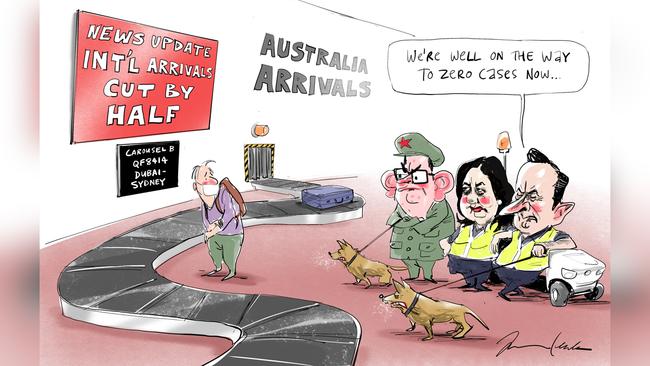
The Australian Financial Review website ran a piece last Wednesday under the headline: Too many people going overseas: McGowan. The lead paragraph read: “West Australian Premier Mark McGowan wants a ‘crackdown’ on Australians travelling overseas as the state records one new case.”
After 185 million cases globally and four million deaths, the premier of a state half the size of Europe wants to stop business travel overseas over a handful of cases that have locked down all of Perth. Journalists seldom question such thinking. They are prisoners of the daily theatre of Covid press conferences about a small number of cases. Few ask how many serious cases are being treated. Late last week only three people were in ICU nationally, none on ventilators. No one in Australia has died of Covid all year.
The latest frenzy is about the infectiousness of the Delta variant. But what if, like many viruses, Covid-19 is becoming more infectious but less deadly?
ANU’s Peter Collignon told James Morrow in Wednesday’s Daily Telegraph that this was indeed the case. Greg Dore, of the Kirby Institute, said total British death rates from the Alpha variant were 2 per cent of cases but for Delta just 0.3. This was partly because the virus was now infecting more young people to whom it was not life-threatening.
Queensland Premier Annastacia Palaszczuk and her chief health officer Jeannette Young on Wednesday launched a self-serving attack on Prime Minister Scott Morrison’s statement last Monday urging people under 40 who want Covid vaccination to discuss AstraZeneca with their GPs.
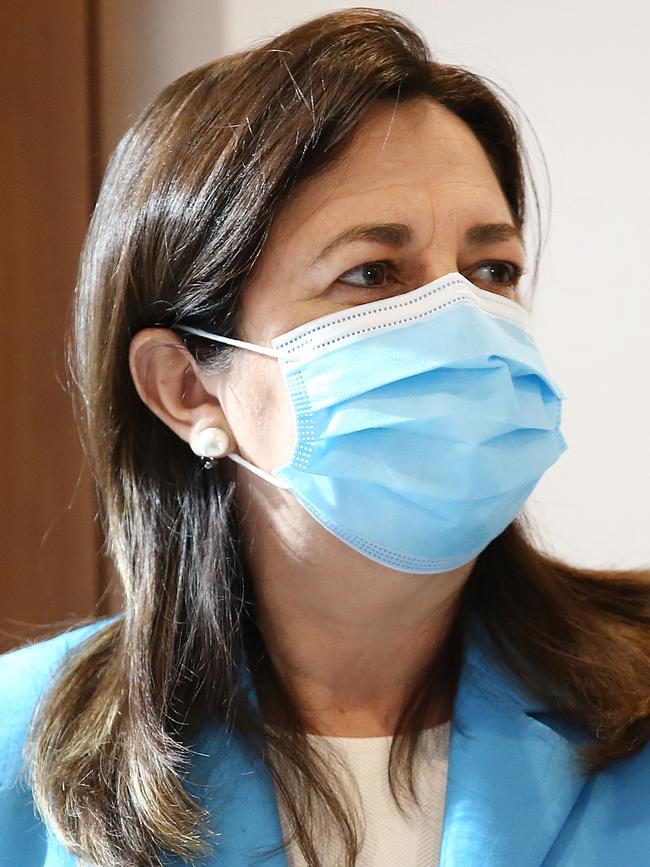
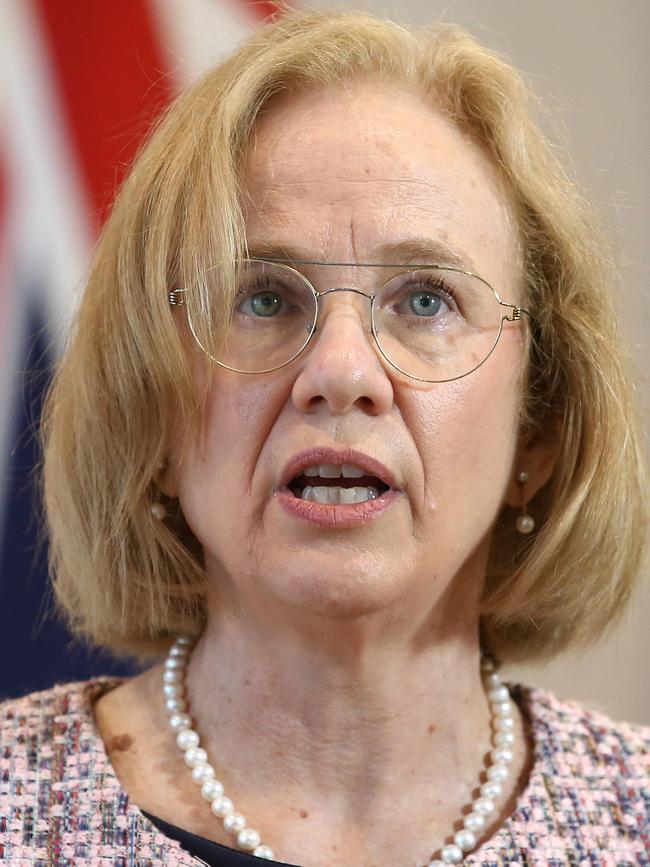
Dr Young inadvertently made Professor Dore’s point about Delta: it is unlikely to kill any young Australians. The risk of death from AstraZeneca here is one in two million. Dr Young said AstraZeneca was a greater threat to young Queenslanders than Covid. The Queensland attack was political cover for the state’s two self-inflicted outbreaks.
One came from an unvaccinated receptionist at Brisbane’s Prince Charles Hospital Covid ward. She picked up Delta and with her brother drove to Townsville and Magnetic Island. Hence the Townsville lockdown. The other was a Bendigo mine worker who picked up the virus in a Brisbane quarantine hotel before spreading it to the NT, and on to Adelaide. Hence lockdowns in Darwin and Alice Springs.
Palaszczuk played parochial Joh Bjelke-Petersen-style politics, and many Whitlam generation journos on Twitter lapped it up. She had been in national cabinet and recommending AstraZeneca for under 40s had not been discussed. She did, however, admit providing a commonwealth indemnity to doctors prescribing AstraZeneca to people under 60 was discussed.
Morrison, frustrated at the slow vaccine rollout, was simply stating the formal advice that had already been in place for months. Many in the media, especially on ABC radio current affairs, could not grasp the concept. As The Australian’s health writer Natasha Robinson explained on Thursday morning, Pfizer was simply “preferred” for under 60s but people had always had the right to consult their GP if they wanted AstraZeneca.
The politics is dangerous for Morrison, who needs to do well in Queensland if he is to hold on to government at an election due within 12 months. His vulnerability is ironic given it is the Commonwealth that has had to underwrite the cost of arbitrary state lockdowns and NSW that has done the quarantine heavy lifting. NSW Premier Gladys Berejiklian on Thursday said Sydney had taken more than half of all travellers returning to Australia.
Yet recent state elections – on March 13 in WA, and October 31 last year in Queensland – demonstrated a fearful public is rewarding Labor leaders prepared to react with extreme caution to any virus detection.
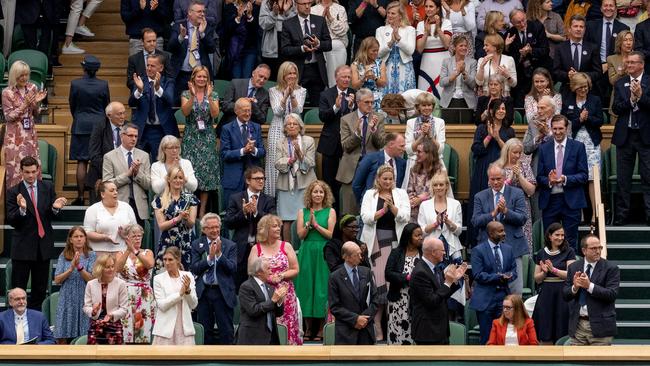
It’s fair the media criticise Morrison’s ham-fisted vaccine rollout, especially among workers in aged care and disability services. Yet too much pandemic coverage is hysterical – take, for example, the intro on Wednesday’s 5pm news bulletin on Ten: “Tonight, Covid-19 rages across the nation …”
We had 317 active cases nationally and only 32 new ones across Australia that day. Britain, 50 per cent vaccinated, that day reported 26,068 new cases and 14 deaths. Yet Britain is opening up with crowds at Wimbledon for the tennis and 40,000 at Wembley for England’s 2-0 soccer win over Germany.
Waleed Aly in the Nine metro newspapers and Phil Coorey in the AFR on Friday pointed to the standing ovation AstraZeneca inventor Dame Sarah Gilbert received at Wimbledon for saving Britain. “If Gilbert turned up at the footy here they would throw rocks at her,” Coorey wrote of the denigration of the AstraZeneca vaccine here.
We are victims of our own success, led by medical advice that is only so cautious because we have almost no Covid.
The Australian Technical Advisory Group on Immunisation and hysterical media reporting of extremely rare AstraZeneca side-effects have damaged a vaccine that works as well as any globally. Had the virus been raging, ATAGI would have applied a different risk equation.
Remember AstraZeneca is being used for over 18s in Germany and, despite Palaszczuk’s false claims, has been used for under 40s in Britain.
Professor Collignon, a genuine expert, on Sky News on Thursday night thought it was reasonable for people under 40 to talk to their GPs about AstraZeneca. Dr Young, like Kerry Chant in Sydney, is not an epidemiologist. She is an administrator and health bureaucrat.
The Australian’s columnist Peta Credlin nailed the dilemma facing national cabinet: “At one level … national cabinet was a stroke of genius. It made the PM look like the leader of our pandemic response. At another level … it turned the PM into a political hostage.”
The feds have done more than any level of government, first by closing international borders and then using JobKeeper and federal spending to underwrite the economy. But Morrison has no control of state lockdowns. And it was the states who decided to run hotel quarantine. Their position is duplicitous. They complain their citizens can’t come home but want fewer overseas arrivals.
Yet Morrison caved in to state demands to halve international arrivals at national cabinet on Friday, in order to get up his four-point plan for reopening Australia. It’s a plan without timelines or, as yet, a vaccination threshold for opening up. Don’t hold your breath for Labor states to forsake lockdowns before the federal election.
The media should put AstraZeneca risks in perspective. The contraceptive pill causes clots in about one in 1000 women a year, The Conversation reported in April. The risk of death in a colonoscopy is about one in 10,000. General anaesthetic deaths average one in 100,000. All are more dangerous than AstraZeneca.
Australia will have to learn to live with Covid. Vaccination will not prevent infection, but it will stop serious illness in most cases. Singapore decided a fortnight ago to stop releasing daily case numbers. It will only release hospitalisation and death numbers. That, as Morrison said, should be our aim.

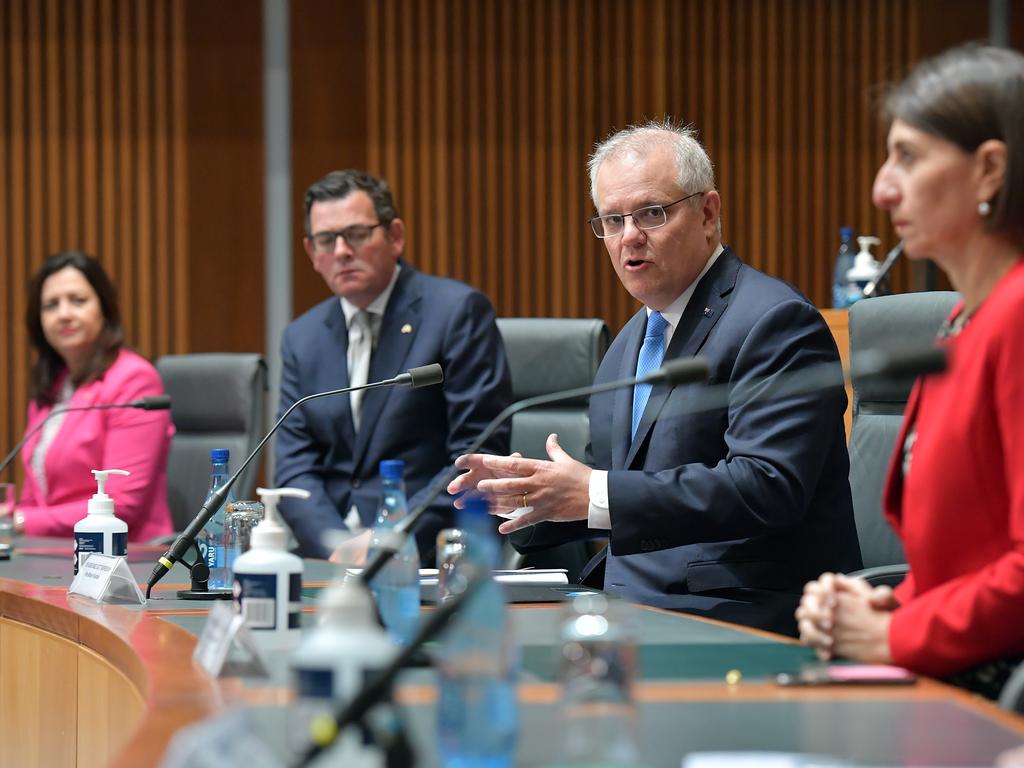
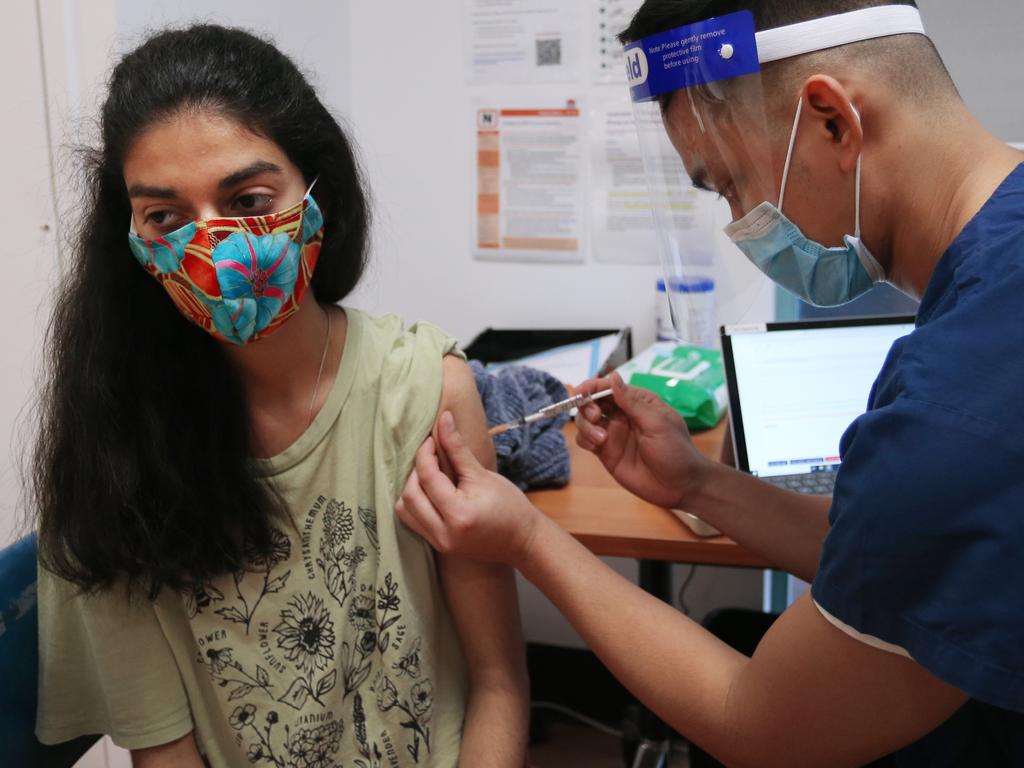
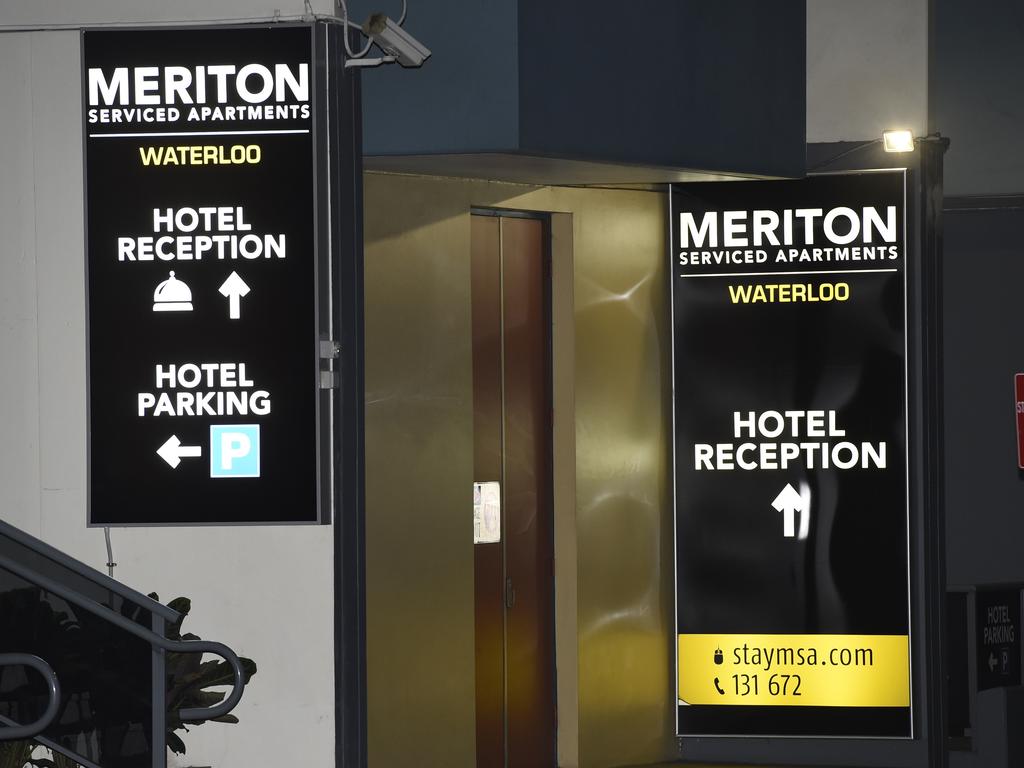



Much of the media coverage of the latest Covid-19 outbreak is over-hyped and politicised.